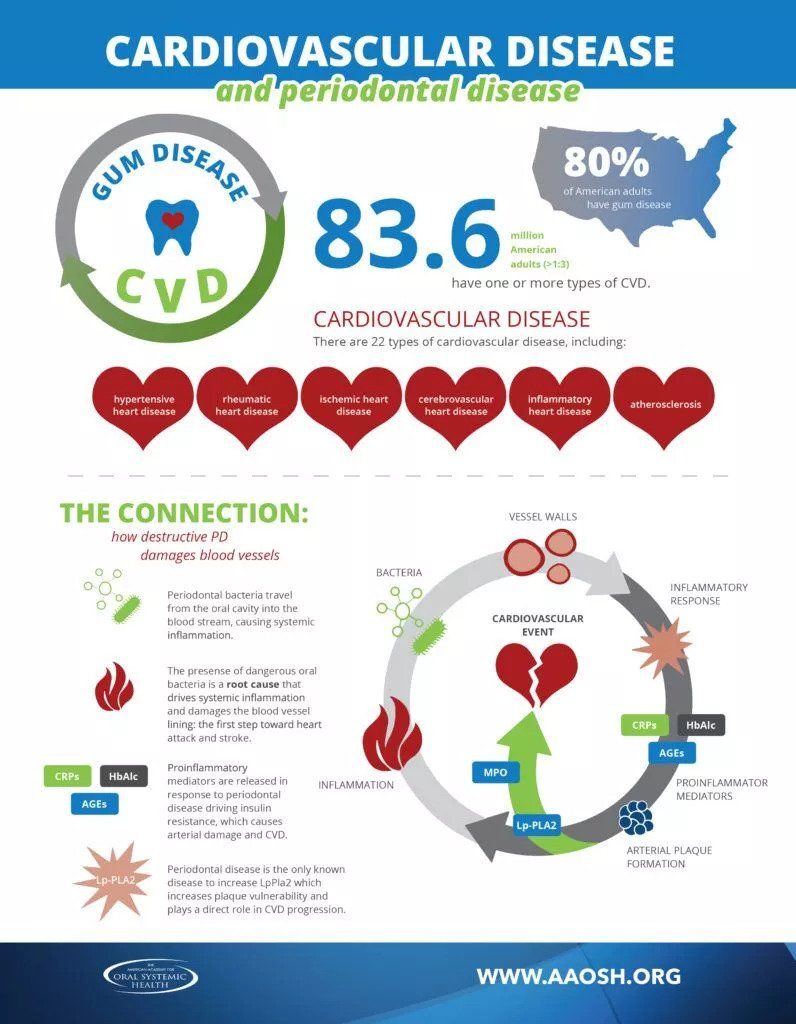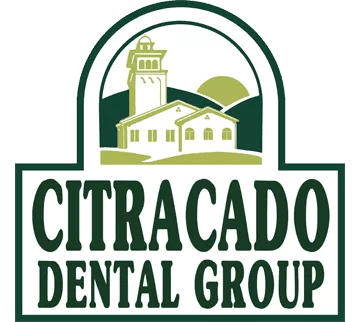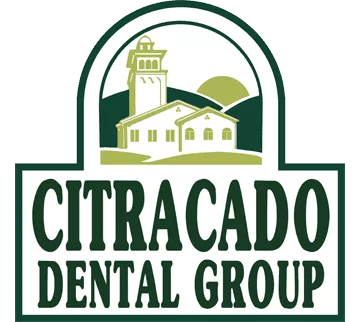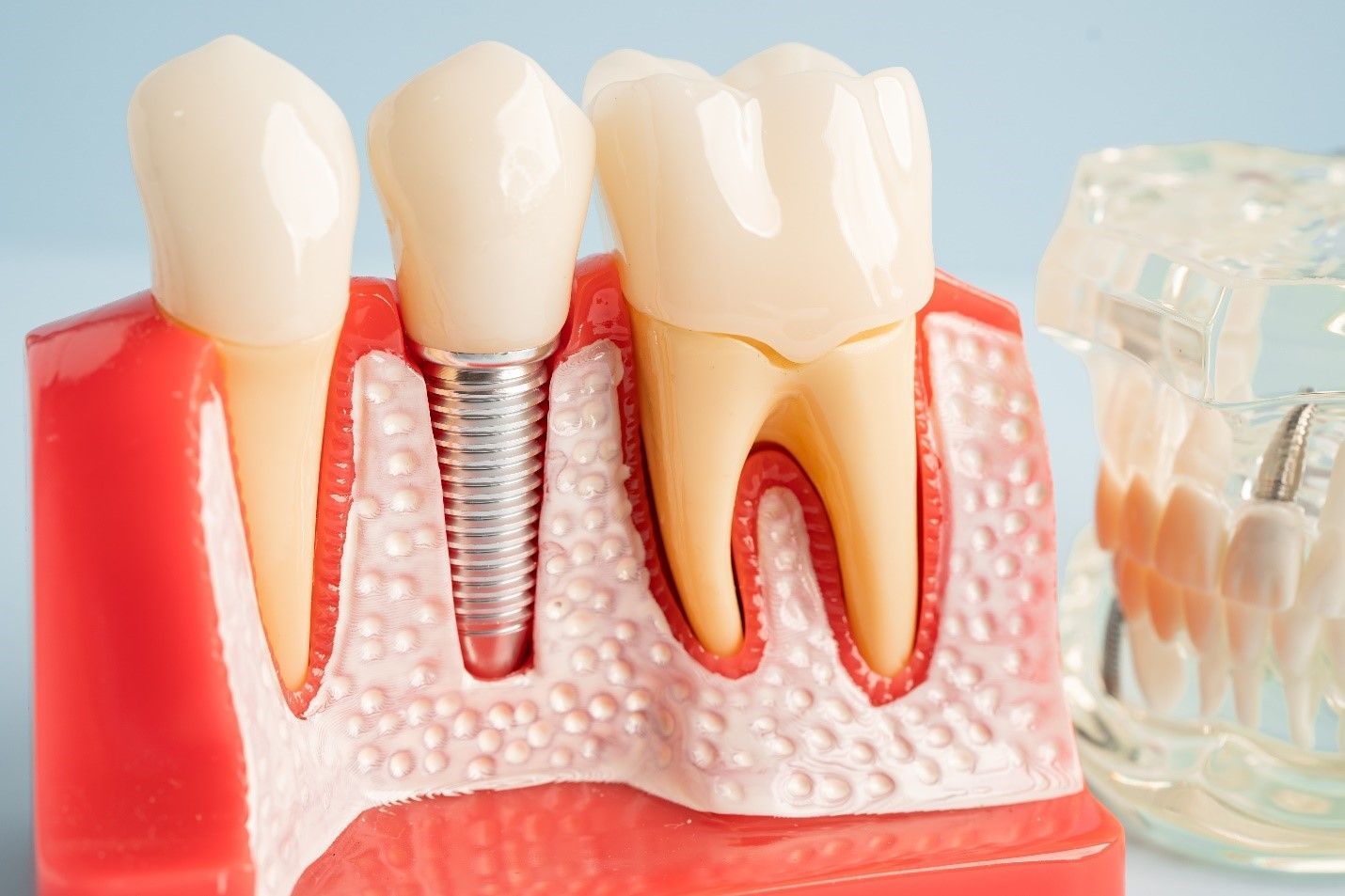FOCUS ON ORAL HEALTH DURING HEART HEALTH MONTH IN FEBRUARY

We have known for years that when it comes to cardiovascular health, the mouth is an important pathway to consider.
This month, the American Heart Association urges people to take some time to learn more about their cardiovascular health. American Heart Month focuses on risk factors that can lead to high blood pressure, heart disease and stroke.
As part of this important education about heart wellness, it is also crucial to understand the links between oral health and your body’s most important muscle.
Let’s start with gum disease and the associated health implications
According to Harvard Health, a collection of studies and observations over many years indicate direct links between poor oral health and higher rates of cardiovascular complications such as heart attack and stroke.
Bacterial infection is one of the primary explanations for this. Infected gums, or gingivitis, and periodontitis (severe gum infection) disperse harmful bacteria and other microorganisms through blood vessels, into the cardiovascular system. This leads to inflammation and damage to the vessels that carry blood through the body and the heart.
Study after study reveals that oral bacteria remnants attach to blood vessel walls. The thickening and hardening of heart arteries and inner linings are major reasons for concern as it relates to heart health.
The body’s immune response can trigger a cascade of events throughout the body, reaching the heart and even our brains. Additionally, Lp-PLA2, a specific marker of inflammation, increases with periodontal disease, which elevates plaque risk and increases cardiovascular complications.
Other risk factors, such as poor diet, lack of exercise and smoking, threaten cardiovascular health. Any of these risk factors, and others, along with poor gum health, have a cumulative effect on the blood vessels and heart health.
Other conditions such as diabetes, rheumatoid arthritis and pancreatic cancer, for example, are illnesses with direct links to gum disease.
Regular brushing and daily flossing, habits within everyone’s control, are integral to one’s dental health. In addition, professional dental hygiene care is important to control oral bacteria, screen for inflammation, and even measure oral bacteria levels. Oral DNA saliva testing, which we provide through our office, will identify the presence of high risk bacteria which are particularly dangerous to the heart and other organs.
As you observe Heart Health Month in February, this is a great time to learn ways of preventing arterial damage, improve heart health, and build our immune systems.
So, join us in smiling and toasting to healthy living and well-being this Heart Health Month!

QUICK MENU
RECENT POSTS






